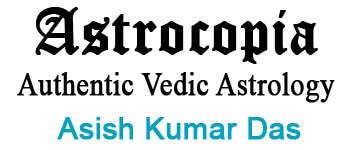Medical Astrology and Planets Online
Medical astrology, a field that explores the effects of planets on the human body, is freely available online. Vedic astrology examines the relationship between planetary influences and diseases. The positions of the planets, whether in exaltation or debilitation, can be linked to the onset of diseases. In addition to the rising signs, the Sun and the Moon are crucial factors in a horoscope, particularly in diagnosing diseases. This understanding can open up new possibilities for more effective medical treatments for conditions such as autism, In-vitro-fertilization (IVF), narcolepsy, and congenital immaturity. All the health issues are discussed here.
Medical Astrology and human body organs
The Vedas project the astral features of humans, beginning with the analysis of different organs concerning their dependence on other planets. In the sketch aside, our body has 12 segmentation parts, and their controlling planets are analyzed. We will now start to learn the 12 classifications of the human body, the planets concerned with acting over those, and the nature and features of the planets relating to the corresponding organs of our body.
- Head and Brain: Mars
- Eye, Ear, Nose, and Throat: Venus
- Heart and Lungs: Mercury
- Hands: Moon
- Upper abdomen: Sun
- Lower abdomen: Mercury
- Genital organs: Venus
- Rectum and Anus: Pluto and Mars
- Thigh: Jupiter
- Knee: Saturn
- Leg: Uranus and Saturn
- Feet: Neptune and Jupiter

Medical Astrology and Mars: Head, Brain, and Blood
Vedic knowledge indicates that the brain and blood maturation remain under Mars's control. Although blood has no access to the brain, it tremendously influences it. Afflicted Mars causes disease in the brain cells. The Sun is the key factor behind the action of every planet. Mars, with the help of Saturn, creates bone marrow; thus, Mars produces blood cells. Mars and Saturn are in perfect harmony, augmenting the production of quality blood in humans. Quality blood gives humans benefits like calmness and a calm nature, but on the contrary, it gives rise to irritating and eccentric lives.
Medical Astrology and Venus: Eye, Ear, Nose, Throat and Genital organs
The Vedas project Venus as performing two types of functions in humans: Type I and Type II, respectively. Venus in affliction causes obesity and ocular, auricular, glandular, and sexual diseases.
In type I activity, Venus cares for our eyes to facilitate vision, auricle for hearing, smelling power, throat, and glands. Minerals, which float effortlessly in the bloodstream, may cause damage to the eyes and even bring about blindness.
In type II activity, Venus takes care of sex organs, normal secretion of growth hormones, maturation, and proliferation of sex cells. Type II activity of Venus in conjunction with the Sun might cause the combustion of sex cells, which has a toxic effect on the human brain. If this abnormal cycle goes on continuously, it may give rise to obesity.
Medical Astrology and Mercury: Heart, Lungs, Skin, and Lower abdomen
Vedic knowledge guides Mercury as the indicator of the presence of life as it allows air to get into the lungs after a baby's birth. Mercury stimulates the nervous system. When a baby comes out of the womb, Mercury sends an impulse to all the body's organs to initiate actions, which causes tremendous thrills and makes the baby cry. The astrology of medicine emphasizes that Mercury is the only causative and remedial factor in all diseases.
Medical Astrology and Moon: Hands and Mind
Vedic study indicates that the Moon controls our mind and hands; besides, it stands for water and controls the water content of our body. Besides, the Moon is the controller of psychiatric diseases and is responsible for pain in the body. Body pain is of two types: first, due to lack of water, and the other, excess water. The first type of pain troubles when the planet comes closest to the Sun during the new Moon. The full Moon causes the second type of pain. Autism is purely a lunar disease.
Medical Astrology and Sun: Upper abdomen
According to the Vedic study, the upper abdomen enjoys the maximum influence of the Sun. The upper abdomen is the zone where food liberates its energy with the help of the pancreas, which produces insulin to digest carbohydrates. The adverse effect of the Sun causes various diseases, including narcolepsy and insomnia.
Medical Astrology and Pluto and Mars: Large Intestine, Rectum, and Anus
Vedic knowledge indicates that the planet Pluto influences humans' large intestines or colons. The large intestine absorbs water and liquidated foodstuffs. Due to its eccentric movement, Pluto is a highly sensitive planet to heat and cold. Likewise, the muscular movement of the large intestine increases with the increase in temperature. It can be experienced easily with hot tea or coffee in the morning, which helps us prompt evacuation. Pluto is heat-sensitive and enhances peristaltic movement.
Medical Astrology and Jupiter: Thighs
Vedic study indicates that Jupiter is the life-initiating planet on Earth. The thighs are the parts influenced by Jupiter in humans. Thighs consume more sugar and thus balance the sugar content in the blood.
Medical Astrology and Saturn: Knees and Bones
The knees enjoy the maximum influence of the planet Saturn. Saturn is responsible for managing all sorts of mineral components in the human body. Saturn helps form bone, cartilage, and blood cells. Saturn provides iron and oxygen, making blood red.
Medical Astrology and Uranus: Legs
The Vedas focus on the legs, particularly the calf muscles, which resemble the function of Uranus in the human body. Uranus, in cooperation with Saturn, takes care of our legs. The most crucial function of Uranus is to maintain gaseous balance. The calf muscles of the legs in our body usually disperse toxic gas formed by anaerobic respiration.
Medical Astrology and Neptune: Feet
The feet represent the part of the human body that enjoys the influence of the planet Neptune. Neptune and Jupiter exert health benefits on our bodies by eliminating toxic fluids and gases through the feet.
